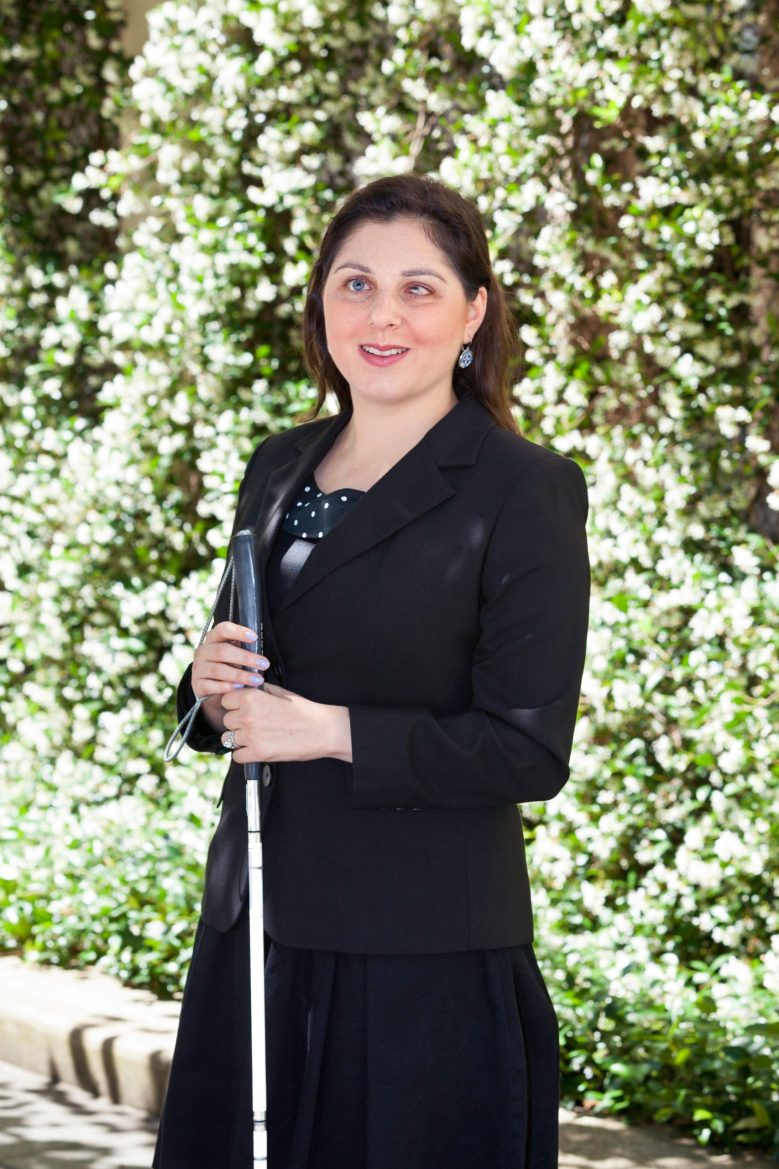ABC Disability Affairs journalist Nas Campanella believes the community is slowly starting to recognise the contribution people with disability are making but there are still hurdles to overcome. She spoke to Kymberly Martin.
Ask Nas Campanella how she can use her role in the media to strengthen the way forward for people with disability to overcome the barriers and her message is clear.
“Seek out people who don’t often speak to the media and portray them in a way they have not been portrayed before. Encourage and support them to tell their stories because these are the stories people connect with that are not just interesting but when those stories come from people with lived experience they are a far more accurate representation of disability.
“More people are sharing their experiences where so many people were once shut out from all aspects of public life,” she told Link.“Finally things are starting to change and I am excited to be part of that but want more people to become part of that journey too.”
She acknowledged there has been significant changes and developments in the past few years and the advent of social media has allowed people to take control of their messaging and the way they communicate to elevate their own voice and the voices of others.
And there has been a definite shift. “The change in perception, albeit slow, is evident and that could be from the NDIS giving more prominence to disability in the community, or the public hearing stories coming out of the Disability Royal Commission.
“We’ve heard stories of people with disability being discriminated against when it comes to work and education and in some cases their lives are not seen as having the same value as people in the general population when it comes to healthcare. I really believe in the power of people telling their own stories and the more the public read, hear and see from people with direct lived experience that is when we will overcome the barriers,” she said.
Campanella was firm in her advice for people with disability. “You are as deserving of opportunities like anyone else. You might think differently, approach work, play or education in a way that does not necessarily look like your neighbour but it does not mean it is any less important. And don’t be afraid to reach out for support because it is there for a reason.”
And are we on the right path? “I am the eternal optimist. We are making strides but the people who are leading the way are the disability community. We are reaching out and making our own way and society needs to start recognising this.”
Nothing is off limits
Campanella has been blind since she was six months old and also lives with Charcot-Marie-Tooth, a generic disease that leaves her with almost total lack of sensitivity in her fingertips and hands, so she is unable to read Braille. But nothing has held her back from a successful media career.
For a girl growing up in Western Sydney she never let disability become a barrier, regardless of stereotyping or social perceptions.
Speaking recently on her Grow Bold With Disability podcast she admitted to always being interested in the media, “because it’s the way I learned about the world around me”.
She started doing community radio in her teens and while her drive and clear talent was evident, her enthusiasm wasn’t shared by everyone as her journey developed, with more “appropriate jobs”, suggested for her.
“I grew up with people telling me that a secretary, or receptionist or psychologist would be appropriate jobs… not knocking those jobs, but it’s just not what I wanted to do. I loved writing from an early age, but at university, when I was looking for work, people would say, ‘how could you tell a story if you don’t see what’s happening?’ those kinds of things.”
Using the lack of belief in her as motivation, it was “this is what I want, and I don’t care what people think”, which helped drive her ambitions.
Utilising Jaws screen reading software, a white cane, a phone for recording, apps and voiceover technology, disability has played a role in her ability as a journalist.
“I think there’s a concerted effort for workplaces to become more inclusive, but there’s a large portion of workplaces still paying lip service.”
She said the biggest barrier for disability employment is attitude, and the concerns today are really the ones that have been worrying people in the disability community for a long time. Technology is available and can be provided, so it’s about creating a space where everybody is welcome.
“It’s been wonderful to connect with so many amazing people in the disability community and to hear the kinds of issues they want on the agenda and give them a platform to do so.”
The Grow Bold With Disability podcast explores the lives of those with a disability, from the issues they face, to the funny and surprising side. Created by Feros Care, a not-for-profit care provider and Local Area Coordinators for the NDIS it is hosted by journalist and broadcaster Pete Timbs and Tristram Peters of disability services comparison website, Clickability, who lives with spinal muscular atrophy.

